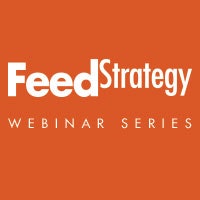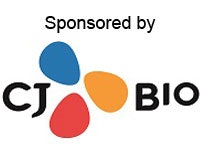
Fast-growing animals such as piglets and broilers need amino acids for (lean) growth. However, feeding high levels of dietary protein to these animals to fulfill their requirements may lead to digestive disorders. Low protein diets can be formulated by using free amino acids, but this raises the question as to how far we can go in reducing the dietary protein content. Can we consider the essential amino acids just one-by-one? Will non-essential amino acids become essential? You can learn about the key technologies essential for modern swine feed formulation, including the levels of bioavailable nutrients,

their relationships to each other, and their relationships to dietary energy. Advances in swine nutrition
and the practice of formulation have resulted in the ability to lower the burden of excess dietary protein on the animal and on the animal’s environment. The featured speakers will be Dr. Jaap van Milgen, Ph.D., Senior Scientist, INRAE, French National Research Institute for Agriculture, Food, and Environment, and Dr. Jeffrey A Hansen, Ph.D., Director of Technical Sales and Service for Swine, NutriQuest. The webinar will be moderated by Dr. Ioannis Mavromichalis, Ph.D., whose pioneering research on valine at the University of Illinois paved the way for very-low-protein diets.
WHAT YOU’LL LEARN:
- What knowledge and expertise about amino acids is needed to lower the crude protein content in diets for pigs and poultry.
- What are technologies for feed formulation primarily for pigs but also for poultry.
- How to correctly characterize the level of digestible amino acids and energy in feedstuffs and the corresponding animal requirements.
- How can the nutritionist fairly value feedstuffs in order to properly formulate diets to optimize performance and minimize nutrient waste, resulting in sustainable swine production?
This webinar is proudly sponsored by CJ BIO and presented by Feed Strategy and WATT Global Media.
Speaker Info:

Dr. Hansen grew up in rural Nebraska, USA, where he worked on his brother-in-law’s diversified livestock and crop farm, gaining a passion for pigs working in a 500 sow farrow-to-finish farm. He received his BS (Animal Science) and MS (Nutrition) from Texas A&M University and his Ph.D. from Kansas State University in Swine Nutrition, before starting on faculty at North Carolina State University in Extension & Research. Dr. Hansen served 20 years as Mgr of Nutrition & Production Research at Murphy Farms, and Dir of Nutritional Programs for Murphy-Brown LLC and Smithfield Foods after leaving NCSU. In 2005 he left Smithfield to become a partner at NutriQuest, where he serves as Director of Technical Sales and Service for Swine. Jeff spent many years developing formulation techniques to help accurately define the relative value of feed ingredients. He developed many computer systems and methods to systematically manage animal feeding, manufacturing accuracy, and animal marketing during his career. One of Dr. Hansen’s key accomplishments in the early 2000s was the development of a proprietary least-cost per pound of gain formulation method that represents the future of floating energy feed formulation.

Dr. Jaap van Milgen is a senior scientist at INRAE, the French National Research Institute for Agriculture, Food, and Environment. His research focusses on energy and protein nutrition and metabolism using both experimental techniques and mathematical modeling. He published well over 100 publications in peer-reviewed journals and he coordinated the European Feed-a-Gene project (www.feed-a-gene.eu) that aimed to adapting the feed, the animal, and the feeding techniques to improve the efficiency and sustainability of monogastric livestock production systems.